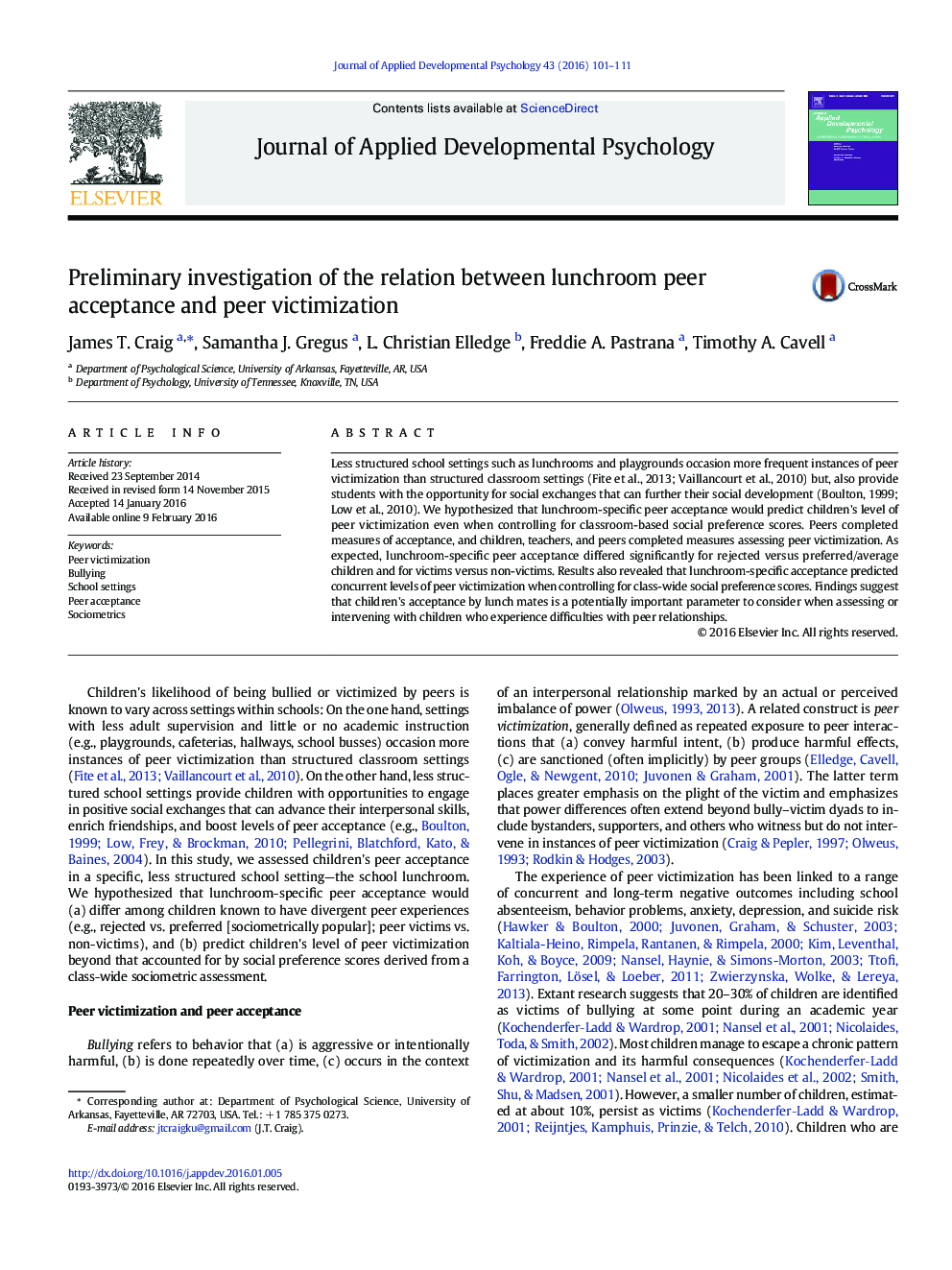| Article ID | Journal | Published Year | Pages | File Type |
|---|---|---|---|---|
| 359597 | Journal of Applied Developmental Psychology | 2016 | 11 Pages |
•Examined the lunchroom as a high-risk/high-reward context for peer relations.•Victims of peer harassment had lower lunchroom peer acceptance than non-victims.•Lunchroom peer acceptance predicted victimization separate from social preference.
Less structured school settings such as lunchrooms and playgrounds occasion more frequent instances of peer victimization than structured classroom settings (Fite et al., 2013; Vaillancourt et al., 2010) but, also provide students with the opportunity for social exchanges that can further their social development (Boulton, 1999; Low et al., 2010). We hypothesized that lunchroom-specific peer acceptance would predict children's level of peer victimization even when controlling for classroom-based social preference scores. Peers completed measures of acceptance, and children, teachers, and peers completed measures assessing peer victimization. As expected, lunchroom-specific peer acceptance differed significantly for rejected versus preferred/average children and for victims versus non-victims. Results also revealed that lunchroom-specific acceptance predicted concurrent levels of peer victimization when controlling for class-wide social preference scores. Findings suggest that children's acceptance by lunch mates is a potentially important parameter to consider when assessing or intervening with children who experience difficulties with peer relationships.
